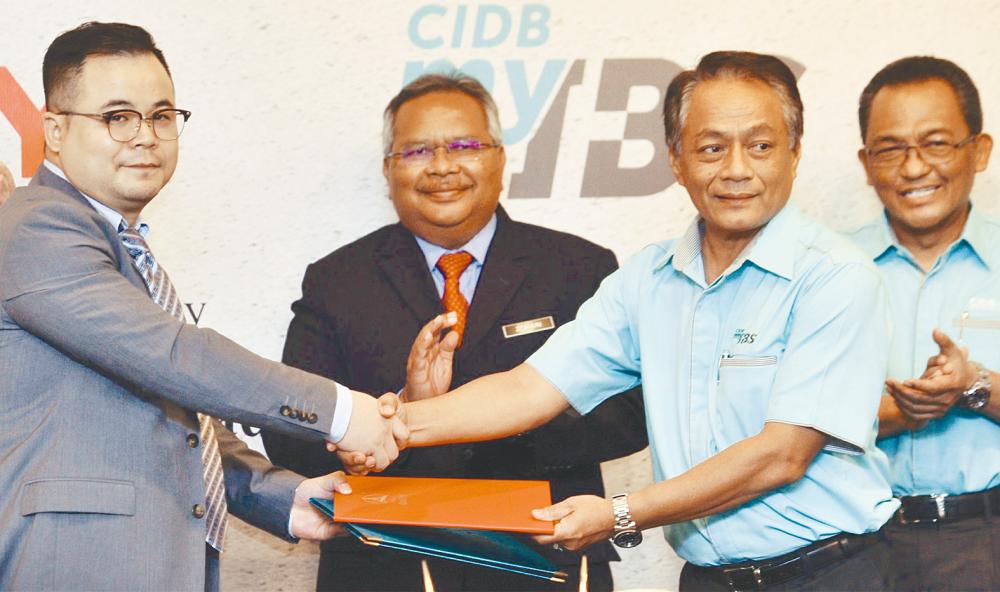KUALA LUMPUR: Construction Industry Development Board Malaysia (CIDB) is partnering with Sany Construction Industry Development (M) Sdn Bhd, a subsidiary of China’s Sany Group Co Ltd, to further enhance industrialised building system (IBS) adoption in the local construction industry.
Sany Construction is a locally incorporated company of Sany Group, which is one of the largest construction companies in China.
CIDB’s wholly owned unit CIDB IBS Sdn Bhd today signed a memorandum of understanding (MoU) with Sany Construction to share information and expertise in IBS-related innovation and technologies as well as collaborate in capacity building programmes.
Speaking at a press conference in conjunction with the MoU signing, CIDB CEO Datuk Ir Ahmad Asri Abdul Hamid said the collaboration is expected to increase the uptake of IBS among the local industry players by 10% in 2019.
“The signing of the MoU will increase the knowledge and expertise in IBS among manufacturers, installers and contractors in Malaysia, while simultaneously raising awareness about the advantages and benefits of IBS technology among industry players,” he added, noting Sany Construction has a significant experience in IBS construction methods.
As at November this year, he said a total of 3,684 workers, 7,496 contractors and 4,053 professionals have registered with CIDB IBS to upgrade their knowledge in implementing IBS technology.
Ahmad Asri noted that the IBS construction methods takes a holistic approach that enables early detection of any potential issues, from the design stage right until completion.
He further explained that a construction project will be able to be completed within a shorter period of time as the IBS system enables more accurate allocation of resources.
“This contributed to the improvement of overall cost-efficiency of a project as well as reduce its impact on the environment,” he added.
Since 2008, the government has mandated the use of IBS in public sector projects worth RM10 million and above, of which the requirement is to achieve a minimum IBS score of 70.
Since January this year, IBS has also been mandated for private sector projects worth RM50 million and above, with the requirement to achieve minimum IBS score of 50.
IBS involves the use of prefabricated components and mechanisation to increase the efficiency, quality and productivity of residential and industrial projects.










